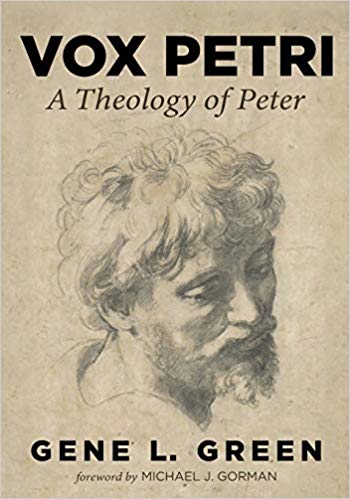BEN: Gene, one of your major emphases when it comes to Peter’s theology is the theme of the New Exodus which you find not only in Mark, but also in Petrine speeches in Acts and in 1 Peter. Explain or clarify for the readers of this blog what you mean by that concept. To me, on the surface of things reading Mark, ‘EISODOS’ might be a better word since he is talking about God’s divine saving activity breaking into the midst of God’s people already in the Holy Land. In what sense does the concept of ‘going out’ or even wilderness wandering have to do with the Petrine theology you see embedded in Mark’s narrative?
GENE: The New Exodus theology is one of the unifying themes throughout the witnesses to Peter’s theology. Rikki Watts did great work on the topic in his Isaiah’s New Exodus in Mark and David Pao explored the theme in his Acts and the Isaianic New Exodus, although for some reason he did not trace this theology through Peter’s speeches. Brian Estelle explores the theme throughout the New Testament in his Echoes of Exodus: Tracing a Biblical Motif and others have discussed it as well. The New Exodus constitutes one of the substructures of Peter’s and, indeed, New Testament theology.
We’re agreed that you can’t really talk about an EXODOS without an EISODOS, the exit and the entry. Whatever language we use we’re going to need to remember the other side of the coin. It’s the same when we talk about the cross of Christ – we always recall that event in relation to the resurrection of Christ, right? The New Exodus is all about divine liberation from evil and entry into God’s hope.
Joel Marcus said in The Way of the Lord that the Exodus was the “founding moment” for Israel and “a model for her future hope.” The hope is for God’s victory over evil which, in the New Testament, is now brought to pass through Jesus Christ. The hope of a New Exodus is central to Isaiah’s theology that, in turn, becomes a theological well Peter draws from. Central to the theology is the deliverance of God’s people from Babylon and idolatry, the “way” down which God leads his people from Exile to Jerusalem, and the arrival at a gloriously restored Zion. In Mark we see this pattern in Jesus’ exorcisms and triumph over evil powers, the “way” up to Jerusalem, and Jesus’ victory at Calvary. The New Exodus theology also encompasses the New Covenant promises, such as the forgiveness of sins (Jer. 31:31-34). I argue in Vox Petri that Peter’s New Exodus theology appears not only in Mark but also in the Petrine speeches in Acts and 1 Peter. For Peter, the gospel is all about liberation and hope, all centered in Jesus Christ. The New Exodus, promised in Isaiah and realized in Christ, is the story of God’s salvation.












